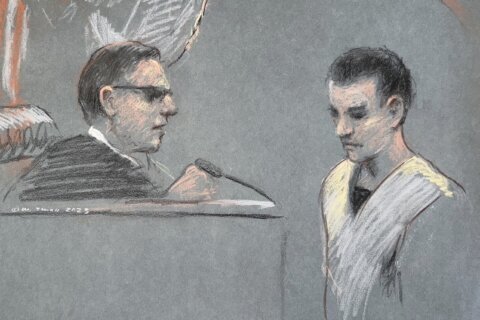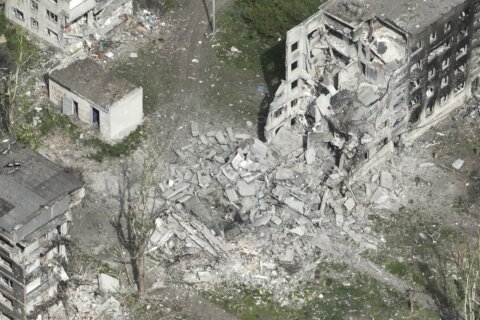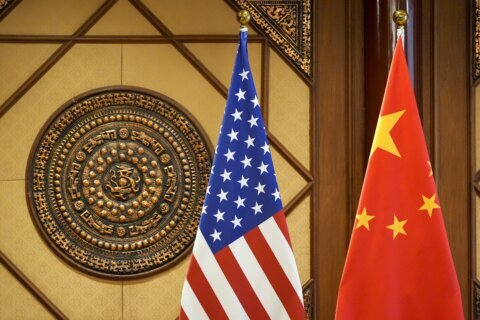BRUSSELS (AP) — The European Union on Tuesday called on Serbia and Kosovo to respect an agreement meant to end tensions between them and put their relations on a more normal path after talks between their leaders ended in acrimony last week.
At a meeting in New York, EU foreign ministers said the commitments that Serbia and Kosovo made in the pact they sealed in February “are binding on them and play a role in the European path of the parties,” which refers to their chances of joining the 27-nation bloc.
The ministers expressed concern about tensions in northern Kosovo, where 93 peacekeepers were hurt in riots in May. “Despite repeated calls by the EU and other international partners, the steps taken so far remain insufficient and the security situation in the north remains tense,” they said.
Serbia and its former province, Kosovo, have been at odds for decades. Their 1998-99 war left more than 10,000 people dead, mostly Kosovo Albanians. Kosovo unilaterally declared independence in 2008 but Belgrade has refused to recognize the move.
The EU has tried to help them improve ties by supervising a “Belgrade-Pristina dialogue.” At a round of meetings in June, Kosovo Prime Minister Albin Kurti and Serbian President Aleksandar Vucic refused to meet face-to-face.
After the latest meetings in Brussels on September 14 -– when the two actually did sit down at the same table -– EU foreign policy chief Josep Borrell blamed Kurti for the breakdown by insisting that Serbia should take steps toward recognizing Kosovo before progress could be made.
Borrell warned that the two would find themselves at the back of the line of countries hoping to join the 27-nation bloc.
On Monday, Kurti accused the EU’s envoy to the dialogue, Miroslav Lajcak, of failing to be “neutral and correct” toward Kosovo in the talks. The EU denies this, although Borrell and Lajcak come from two countries -– Spain and Slovakia –- which do not recognize Kosovo as an independent country.
The ministers expressed their “full support” for Borrell and Lajcak. In an email response to questions from The Associated Press, the U.S. State Department said: “We thank and recognize the tireless efforts of EU Special Representative Miroslav Lajcak.”
Kurti — a longtime Kosovo independence activist who spent time in prisons in both Serbia and Kosovo — has frustrated the Europeans and proven difficult for negotiators to work with since he became prime minister in 2021.
It’s unclear when another round of meetings might take place, and the EU appears to have little leverage left. The United States is the other key player in the process, and the State Department said that it would consult “internally and with our European partners on next steps.”
“As we’ve repeatedly said, the EU-facilitated Dialogue is the only path forward for Kosovo and Serbia,” it said. “We expect both countries to take seriously their obligations under the agreement on the path to normalization they reached earlier this year. Time is running out.”
Borrell has routinely warned them that the last thing Europe needs is another war in its backyard.
Vucic, a former ultranationalist who now claims to want to take Serbia into the EU, has maintained close ties with Russian President Vladimir Putin and has refused to impose sanctions on Russia over its war on Ukraine.
There are widespread fears in the West that Moscow could use Belgrade to reignite ethnic conflicts in the Balkans, which experienced a series of bloody conflicts in the 1990s during the breakup of Yugoslavia, to draw world attention away from the war.
___
Semini reported from Tirana, Albania. Matthew Lee in New York contributed.
Copyright © 2024 The Associated Press. All rights reserved. This material may not be published, broadcast, written or redistributed.







